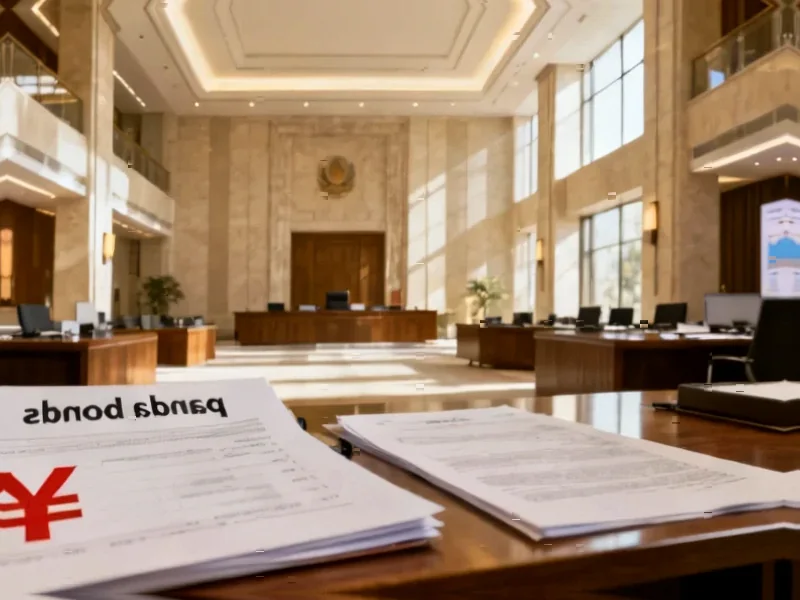According to Financial Times News, Starbucks has agreed to sell a majority stake in its China business to Hong Kong-based private equity firm Boyu Capital for $4 billion. The deal gives Boyu up to 60% interest in Starbucks’ 8,000 stores across China, while Starbucks retains 40% ownership and will license its brand and intellectual property to the new joint venture. The transaction values Starbucks’ China retail business at over $13 billion, including proceeds from the sale, retained interest value, and future licensing payments. Starbucks CEO Brian Niccol stated that Boyu’s “deep local knowledge and expertise” will help accelerate expansion plans to reach 20,000 stores in China, which would surpass its current North American footprint. The deal culminates months of evaluation that saw Boyu and Carlyle emerge as leading contenders from five initial bidders.
The Strategic Retreat Behind the Expansion Narrative
While Starbucks frames this as an acceleration play, the reality is more nuanced. Selling majority control represents a significant strategic retreat for a company that has historically maintained tight operational control over its international markets. The move suggests Starbucks recognizes that navigating China’s post-pandemic consumer landscape, intensifying local competition, and complex regulatory environment requires more than just capital—it requires surrendering control to partners with deeper local connections. This isn’t merely a financial transaction; it’s an admission that the old playbook of Western brands dominating China through sheer scale and brand power no longer applies in today’s market conditions.
Why Private Equity Wants Your Morning Coffee
Boyu Capital’s $4 billion bet represents a fascinating case study in private equity’s evolving China strategy. Unlike traditional buyout firms that typically seek quick returns through cost-cutting and financial engineering, Boyu appears to be playing a longer game. The firm, known for its connections to Chinese political and business elites, is betting that Starbucks’ brand equity combined with local operational expertise can unlock value in China’s lower-tier cities where growth potential remains substantial. For Boyu, this isn’t about flipping assets—it’s about building a platform that can withstand both economic cycles and geopolitical tensions while generating steady cash flow from one of China’s most resilient consumer segments.
The Ripple Effects Across China’s Coffee Wars
This deal will send shockwaves through China’s intensely competitive coffee market. Local challengers like Luckin Coffee—which has staged a remarkable comeback and now operates over 16,000 stores in China—have been gaining market share through aggressive pricing and digital innovation. Meanwhile, international competitors like Tim Hortons have been expanding rapidly with their own localization strategies. By bringing in Boyu, Starbucks gains not just capital but political and operational leverage that could help it navigate the price wars and market saturation that have made China’s coffee sector increasingly challenging. The move may force other international brands to reconsider their China ownership structures.
What This Means for Global Retail Investors
The Starbucks-Boyu deal establishes a new template for Western consumer brands in China. Rather than maintaining full control and bearing all the operational risks, companies can now point to this transaction as proof that partial ownership through local partners can unlock value while reducing exposure. This model—maintaining brand ownership while ceding operational control—could become increasingly attractive for other multinationals facing similar challenges in China. However, investors should watch carefully how Starbucks manages the inherent tensions of this arrangement, particularly around quality control, brand consistency, and the division of strategic decision-making between Seattle and Shanghai.
The Unspoken Risks in This Marriage
Beyond the optimistic expansion targets lie significant risks that neither party is highlighting. First, the licensing model creates potential for brand dilution as Starbucks cedes day-to-day control over store operations and customer experience. Second, the ambitious target of 20,000 stores raises questions about market saturation—can China’s coffee consumption really support that many premium coffee shops, especially as economic growth slows? Third, the geopolitical landscape remains unpredictable, and Starbucks now finds itself with a Chinese private equity firm as its majority partner in its second-largest market. Any deterioration in U.S.-China relations could complicate this arrangement in ways that pure financial models cannot capture.





Your article helped me a lot, is there any more related content? Thanks!